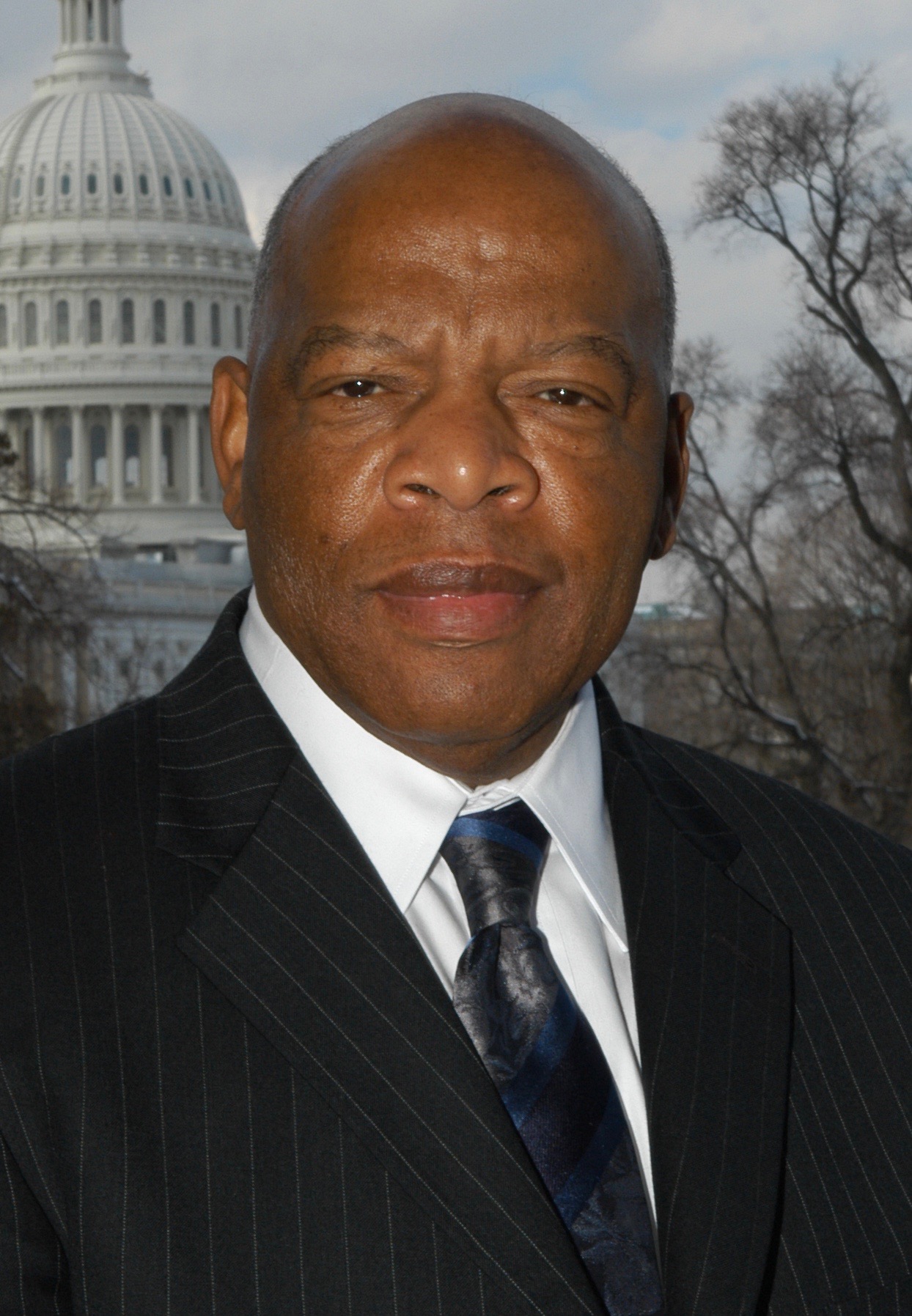Mt. 10:1, 7-8
…as it is written in the words of Isaiah the Prophet: “A herald’s voice in the desert, crying, ‘Make ready the way of the Lord, clear him a straight path. Every valley shall be filled and every mountain and hill shall be leveled. The windings shall be made straight and the rough ways smooth, and all mankind shall see the salvation of God.’”
Isaiah, like all the prophets, certainly suffered for wanting people to prepare a way for the Lord. He preached truth in spite of the powerful wanting to silence or ignore his message. John Robert Lewis, like the prophet, wanted everyone to experience the salvation of God. So, he worked toward that goal his whole life, even when persecuted for the truth.
Born in rural Alabama in 1940, John Lewis attended a Rosenwald School, one of many state-of-the-art schools built across the South for African-American students by Booker T. Washington and Julius Rosenwald, then President of Sears Roebuck. John, in recalling his school days, said he had a great teacher who encouraged him to read. He followed his teacher’s advice and read as many books as he could find. When he was sixteen, he and his siblings went to nearby Troy, Alabama, to get a public library card. They were told the library was only for Whites and were turned away. In the next few years, as he went to town more, he realized how segregated Troy was. In 1955, he heard Dr. Martin Luther King, Jr. on the radio. He followed the Montgomery bus boycott, later meeting Rosa Parks who, by refusing to move to the back of the bus, played a significant role in that boycott.
Lewis graduated from the American Baptist Theological Seminary in Nashville, Tennessee, and was ordained a Baptist minister. From there he attended Fisk University where he earned a Bachelor’s degree in religion and philosophy. Both were historically Black Colleges. While studying, Lewis became an activist for Civil Rights. He managed, with other students, to desegregate lunch counters in downtown Nashville. Lewis was arrested and jailed often, but he strictly adhered to nonviolence. During this period, John said it was essential to cause “good trouble, necessary trouble” in order to bring about racial justice.
In 1961, Lewis was one of the original 13 Freedom Riders, a group of both whites and blacks trying to desegregate bus seating in the South. He and others were brutally beaten. John was even imprisoned for his actions. Still, he persisted. In 1964, he launched a campaign to engage college students throughout the country to register voters in Mississippi. In 1965, John organized the Selma Voting Rights Campaign along with the Selma to Montgomery marches to bring national recognition to the cause. On March 7, 1965, now called “Bloody Sunday,” Lewis and Hosea Williams led more than 600 marchers over the Edmund Pettus Bridge in Selma, Alabama. When the group stopped to pray, they were attacked by State Troopers who beat them mercilessly. Lewis suffered a skull fracture but was blessed to escape with his life.
John Lewis knew that laws needed to be just, and so he began a political career. Elected to Congress in 1986, he served the cause of justice until his death in 2020 at the age of 80. During that time he tirelessly taught us how to make rough ways smooth and crooked ways straight in a nonviolent way. This was John’s way of preparing for meeting his Savior and for bringing others along with him.
John Robert Lewis is today’s Ornament of Grace.
OBSERVING THE BEAUTIFUL ORNAMENTS
- What are some ways you can work for the justice and good of all people?
- How can your thoughts help to keep your actions for various causes nonviolent?







